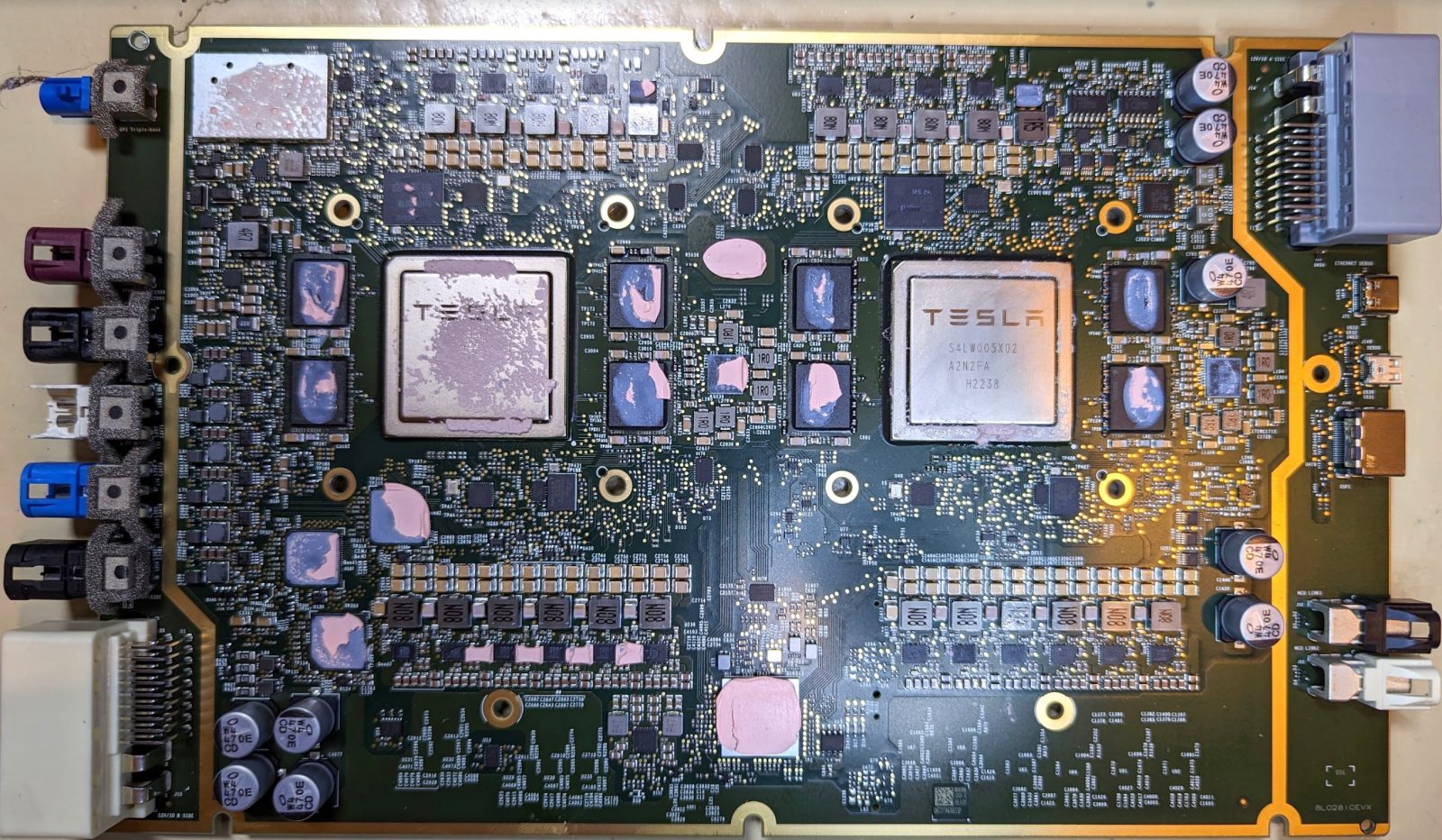
Tesla has officially issued a recall on over 200,000 vehicles in the US over the self-driving computer inside the vehicle short-circuiting and failing to work.
This is an issue that Electrek has been reporting on for a month.
In December, Electrek released an exclusive report about Tesla having a major issue with a new version of its onboard “Full Self-Driving computer,” AI4.1, failing due to a short circuit, and Tesla must replace the computers.
We found examples of the issue arising as far back as July. The problem can start quickly, within a few miles on a brand-new car or after a few hundred to a few thousand miles.
When the computer fails, many vehicle features stop working, like active safety features, auto wipers, auto high beams, cameras, and even GPS, navigation, and range estimations.
Tesla’s fix was to replace the computer completely, but sources also mentioned a temporary software fix to enable some of the features in the meantime.
We followed up with another report earlier this week that highlighted how it is leaving customers in a difficult situation without the features and with faster battery degradation as the computer appears stuck in an auto-update mode that drains 5 kWh per day.
In the latest report, we also mentioned that Tesla has yet to issue a recall regarding this issue despite having to do so since these vehicles have become non-compliant with NHTSA without rear-view cameras.
Today, Tesla officially released a recall over the issue. For the first time, we get a better idea of the affected population, which adds up to 239,382 vehicles:
The subject population includes certain Model Year (MY) 2024 – 2025 Model 3, MY 2023-2025 Model Y, MY 2024-2025 Model S and MY 2023-2025 Model X vehicles that were equipped with certain car computers and operating a software release that was prior to 2024.44.25.3 or 2024.45.25.6
In the recall notice, Tesla describes the non-compliance:
On a small percentage of affected vehicles, upon vehicle power up, a reverse current may cause a shorting failure on the car computer board, resulting in the loss of rearview camera functionality, which does not comply with FMVSS 111, S5.5 and S6.2
Again, the problem is much larger than that as the entire computer fails, but the automaker only mentions the rear-view camera because that’s the part that makes it a safety risk and non-complaint.
Top comment by Grant
These things happen when new parts are used, I get it. But Tesla needs to be more transparent about the issue, and also come out publically with a plan to replace these as quickly as possible. It's just bad business to handle it this way.
Tesla says that it noticed the higher rate of computer failure on November 21, 2024. It started investigating and after about a month, it believes it has an idea of the cause, which would be several factors working together:
This sequence of specific software and hardware configurations, coupled with colder temperatures, could increase reverse current, which could short the primary and/or secondary power components.
As of December 30, 2024, Tesla has identified 887 warranty claims related to this issue.
In the remedy section of the recall, Tesla explains that it will push the software fix to the entire population, but it will also continue to provide computer replacement for vehicles who experience shorting:
On or shortly after December 18, 2024, at no cost to customers, affected vehicles began receiving an over-the-air (OTA) software update that changes the vehicle power up sequence to prevent the shorting failure condition to the primary and/or secondary power component. No further action is necessary from owners of affected vehicles that are equipped with software release 2024.44.25.3, 2024.45.25.6 or a later release if an affected vehicle has not experienced the shorting failure condition or stress that may lead to the shorting failure condition. Tesla is actively working to identify which affected vehicles, if any, experienced stress that may lead to the shorting failure condition. If an affected vehicle experienced the shorting failure condition or stress that may lead to the shorting failure condition prior to installing software release 2024.44.25.3, 2024.45.25.6 or a later release, then Tesla will replace the vehicle’s car computer at no cost to the customer.
We reported that some customers experiencing this issue are having to wait for months for a computer replacement.
FTC: We use income earning auto affiliate links. More.





Comments